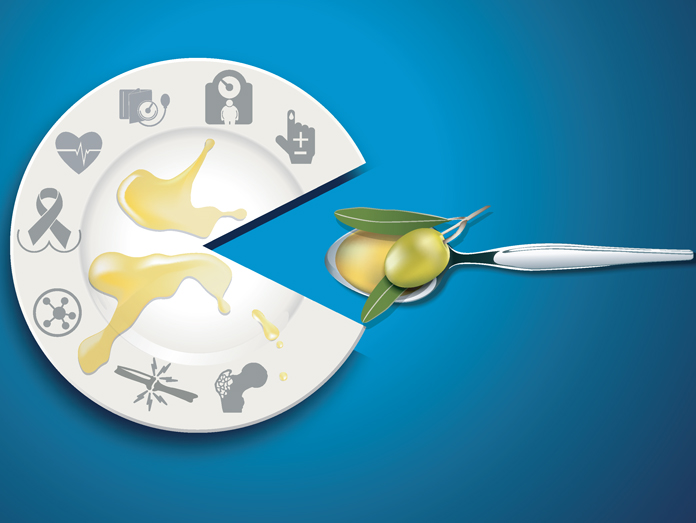According to a recent study conducted by Australian researchers, consuming extra virgin olive oil high in polyphenol can significantly reduce peripheral and central systolic blood pressure in healthy adults. Namely, peripheral and central systolic blood pressure decreased in study participants by 2.5 and 2.7 millimeters of mercury (mmHG), respectively. However, the researchers found that no significant differences were observed in diastolic blood pressure or arterial stiffness.
Extra virgin olive oil (EVOO) is suggested to be cardioprotective, partly due to its high phenolic content. Researchers investigated the effect of extra virgin high polyphenol olive oil (HPOO) versus low polyphenol olive oil (LPOO) on blood pressure (BP) and arterial stiffness in healthy Australian adults. In a double-blind, randomized, controlled cross-over trial, 50 participants (age 38.5 ± 13.9 years, 66% female) were divided into two groups. In one group, participants consumed a daily dose of 60 milliliters of a high-polyphenol (with a phenolic content of 360 milligrams per kilogram) extra virgin olive oil for three weeks. In the other group, participants consumed the same amount of refined olive oil, which is low in polyphenols (86 milligrams per kilogram).
After the three weeks, the participants spent two weeks cleansing their systems, not eating any olives or olive oils, before switching over to consume the other type of olive oil.
Blood pressure readings on each of the participants were taken after each of the three week periods. What researchers found is that participants only experienced the peripheral and central systolic blood pressure decrease after consuming high-polyphenol extra virgin olive oil.
Neither type of blood pressure significantly decreased in either set of participants after consuming the refined, low-polyphenol olive oil.
The practical health implications of the study are focused on the fact that the addition of just 60 milliliters (about four tablespoons) of extra virgin olive oil in the daily diet can lead to a decrease in systolic pressure that is of great clinical significance and public health importance, especially with regards to the prevention of cardiovascular disease.
What are polyphenols
Polyphenols are a group of phytochemicals, which are naturally occurring micronutrients in plants. Polyphenols typically act as antioxidants. They can help prevent cellular damage from free-radicals that occur with pollution, smoking, eating rancid foods, and as a byproduct of normal metabolism. Studies show that these olive phenols have major antioxidant properties, meaning they are really good for arterial health. In other words, studies show that polyphenols found in olives can increase the availability of healthy molecules.
READ MORE: Academic Research



















